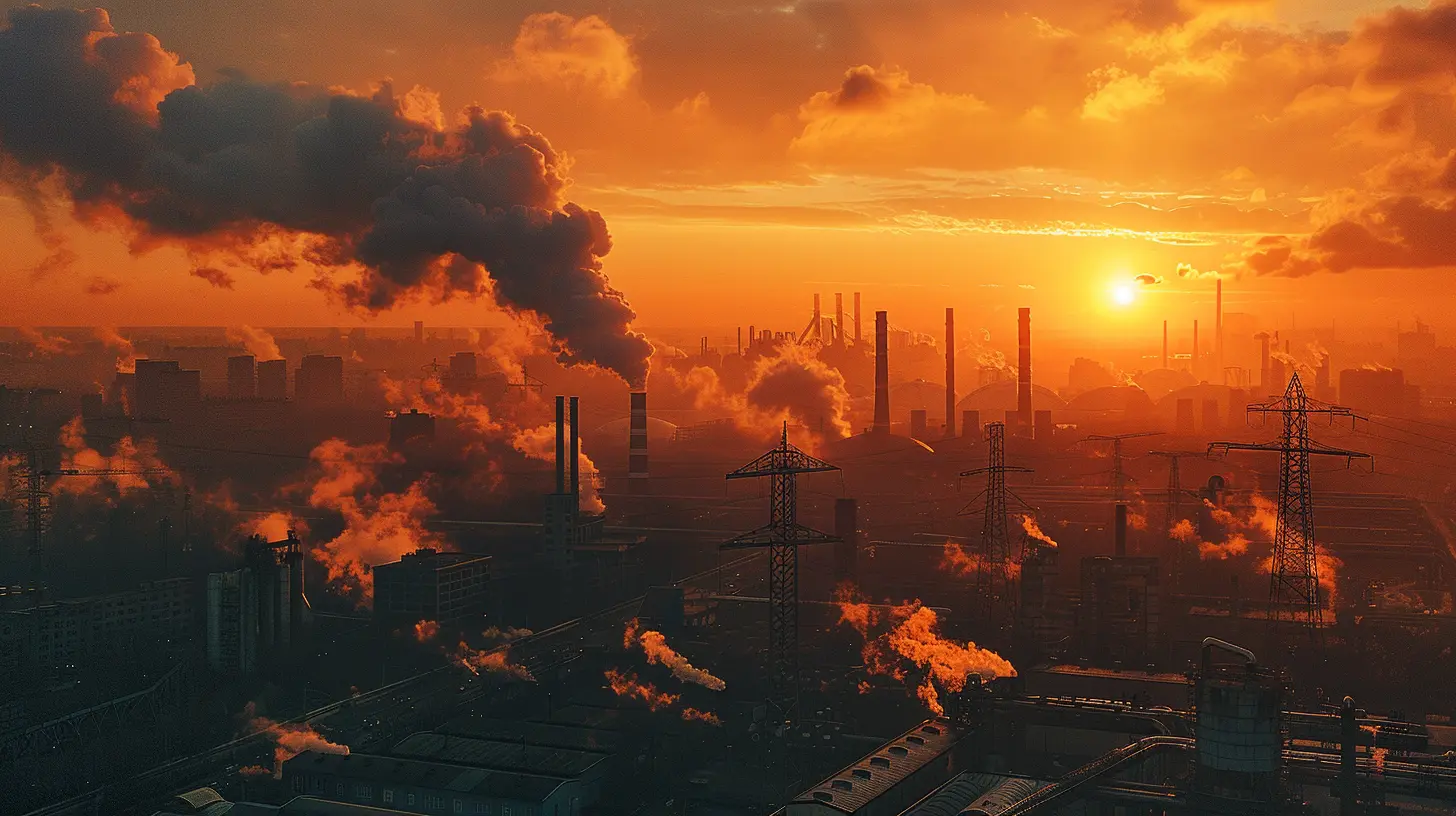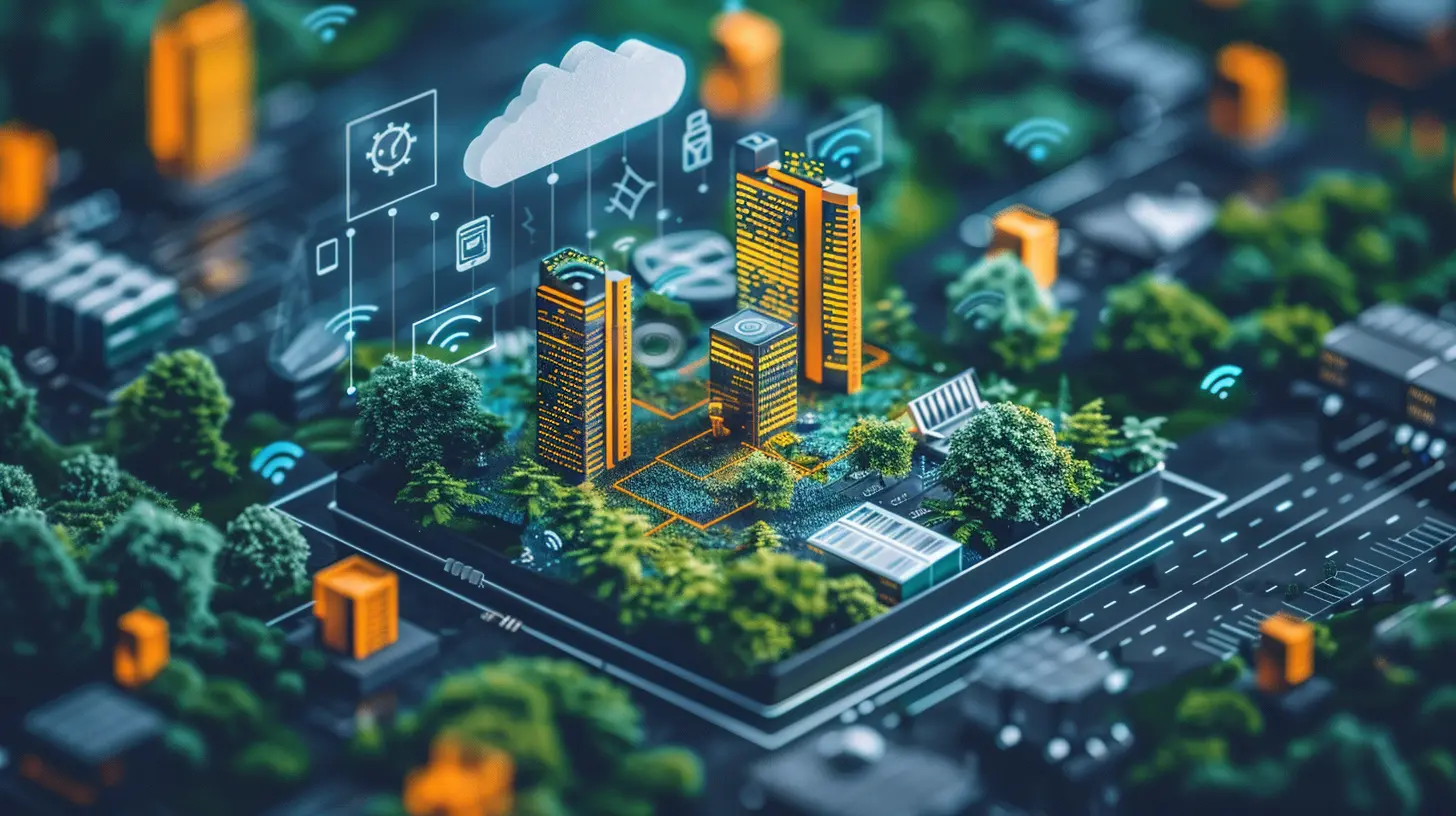22 November 2024
Climate change—two words that seem to be looming over our heads more and more as the years roll by. Every day, we hear the effects of our warming planet: melting ice caps, rising sea levels, extreme weather patterns, and wildfires. It’s no longer just a future problem; it’s a present reality. But what if I told you that technology, often seen as part of the problem, might actually hold a huge key to the solution?
Yep, the very gadgets and innovations that have shaped modern life are now at the frontlines of the fight against climate change. From renewable energy to AI-driven data analysis, tech is playing a pivotal role in helping us mitigate the damage—and hopefully, reverse some of it. So, let’s dive into how technology is stepping up, and what that means for our future on this planet.

Renewable Energy: Powering the Future
Let’s start with the big one—renewable energy. Fossil fuels have been the go-to for centuries, but their impact on the environment has been catastrophic. The good news? Tech has been instrumental in developing cleaner, greener alternatives.Solar Panels: Harnessing the Sun
Solar energy is one of the most promising renewable sources out there. Thanks to advancements in photovoltaic technology, solar panels are becoming cheaper, more efficient, and easier to install. Whether it's large solar farms powering entire cities or individual panels on your neighbor’s roof, solar power is quickly becoming a viable alternative to coal and natural gas.Wind Turbines: Letting Nature Do the Work
Ever driven past a field of giant wind turbines? Those things are massive, and they’re only getting better at converting natural wind into electricity. Wind energy is already a major power player in many parts of the world, and with better tech, it’s becoming even more efficient.Batteries: Storing Energy for a Rainy Day
Of course, the sun doesn’t always shine, and the wind doesn’t always blow. That’s where energy storage technologies, like lithium-ion batteries, come into play. These batteries can store excess energy produced by renewable sources, making sure we have power even when the weather isn’t cooperating. It’s like saving up for a rainy day—literally.
Electric Vehicles: Greener on the Go
Cars and trucks are a huge part of the climate change equation. The internal combustion engine has been a major culprit in greenhouse gas emissions. But tech is once again stepping in to offer a greener solution: electric vehicles (EVs).The Rise of EVs
Electric vehicles have come a long way since their early days. Companies like Tesla, Nissan, and even traditional automakers like Ford are pushing the boundaries of what EVs can do. With advancements in battery technology, EVs are now capable of longer ranges, faster charging times, and more affordable price tags.And it’s not just cars. Electric buses, trucks, and even planes are starting to take off (pun intended). This shift to electric transportation could dramatically reduce emissions from one of the most polluting sectors.
Charging Infrastructure: The Backbone of EV Adoption
But what’s an electric car without a place to charge it? That’s where tech companies and governments alike are investing heavily in charging infrastructure. Fast-charging stations are popping up everywhere, from gas stations to parking lots. The idea is to make charging your EV as easy as filling up your gas tank—if not easier.
Artificial Intelligence: Smarter Solutions for Complex Problems
Artificial Intelligence (AI) isn’t just for robots or self-driving cars. It’s also proving to be an invaluable tool in the fight against climate change. AI is particularly good at processing massive amounts of data—something that’s crucial when you’re dealing with the complexities of our planet’s climate systems.Predicting Climate Patterns
One of the most powerful ways AI is being used is in climate modeling. By analyzing data from satellites, weather stations, and historical records, AI can create more accurate models of future climate patterns. This helps governments and organizations plan for things like crop shortages, floods, and other climate-related disasters before they happen.Optimizing Energy Use
AI is also helping us use energy more efficiently. Imagine having a smart thermostat in your home that not only learns your preferences but also taps into real-time data about energy supply and demand. It could reduce your energy use during peak times or adjust based on the weather, saving you money while also cutting down on unnecessary energy consumption.Smart Cities
AI is the backbone of the "smart city" concept, where technology is used to manage resources like water, electricity, and waste more efficiently. From traffic light systems that reduce congestion to sensors that monitor the health of critical infrastructure, AI is helping cities become more sustainable.
The Internet of Things (IoT): Connecting the Dots
If you haven’t heard of the Internet of Things (IoT), it’s basically a fancy way of saying that everyday objects are becoming “smart” by being connected to the internet. And while that might sound like something out of a sci-fi movie, IoT is already playing a big role in fighting climate change.Smart Homes
Take smart homes, for example. IoT devices like smart thermostats, lighting systems, and appliances can all work together to reduce your energy consumption without you even lifting a finger. They can learn your habits, adjust to the weather, and even turn off devices when they’re not in use. It’s like having an eco-conscious personal assistant in your home.Precision Agriculture
IoT is also making waves in agriculture. Smart sensors placed in fields can monitor soil moisture, temperature, and nutrient levels in real-time. This allows farmers to use water, fertilizers, and pesticides more efficiently, reducing waste and minimizing their environmental impact. It’s farming, but smarter.Blockchain: A Surprising Ally
Most people associate blockchain with cryptocurrencies like Bitcoin, but its potential goes far beyond digital money. In the fight against climate change, blockchain is being used to create more transparent, traceable, and secure systems for managing everything from carbon credits to renewable energy.Tracking Emissions
One of the biggest challenges in reducing emissions is accountability. How do we know if companies are actually cutting their carbon output? Blockchain can provide a transparent, tamper-proof record of emissions data, making it easier to track progress and hold companies accountable.Decentralizing Energy
Blockchain is also being used to create decentralized energy grids, where individuals can generate and share renewable energy. Imagine having solar panels on your roof and being able to sell excess energy directly to your neighbors without going through a middleman. Blockchain makes that possible by facilitating peer-to-peer energy transactions.The Challenges Tech Faces
Of course, it’s not all smooth sailing. While technology has tremendous potential, it’s not a silver bullet. There are still challenges we need to overcome.Resource Use
Tech itself can be resource-intensive. Manufacturing solar panels, wind turbines, batteries, and EVs requires raw materials—many of which are finite or require environmentally harmful mining practices. We need to find ways to make these processes more sustainable.E-Waste
Another issue is electronic waste (e-waste). With new gadgets constantly hitting the market, the amount of old tech being discarded is staggering. And unfortunately, much of it ends up in landfills, where toxic materials can leach into the soil and water.But even here, tech is helping. Efforts are being made to improve recycling processes, and some companies are designing gadgets that are easier to repair, upgrade, or recycle. The concept of the circular economy, where products are designed with their end-of-life in mind, is gaining traction.
The Future: Tech and Climate Change
So, where do we go from here?The reality is that tech alone won’t solve climate change. It’s going to take a global effort, with governments, businesses, and individuals all playing their part. But technology is an incredibly powerful tool—and one that’s already making a difference.
As new innovations continue to emerge, the hope is that we’ll be able to scale these solutions quickly enough to make a real impact. From AI-driven climate models to electric vehicles and renewable energy storage, tech is offering us a way forward. Now it’s up to us to embrace it.
In the end, the fight against climate change isn’t just about reducing emissions or building smarter cities. It’s about rethinking how we live on this planet and using the tools at our disposal to protect it for future generations. And if we get it right, tech will be one of our greatest allies in that fight.













Isaiah Cain
Innovative tech solutions are vital for combating climate change and promoting sustainable practices worldwide.
March 19, 2025 at 8:19 PM